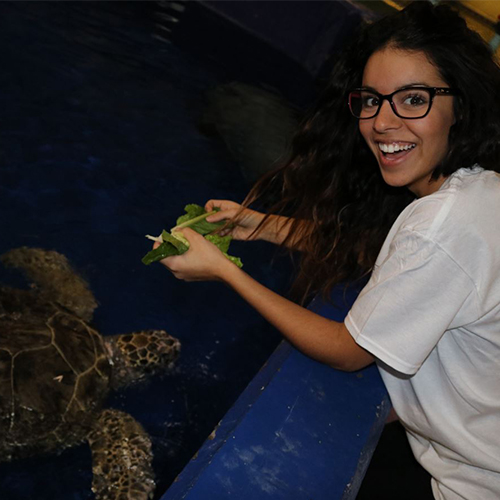This week we spotlight Oceana. Founded in 2001, it is the largest international advocacy organization focused solely on ocean conservation. Sarah Cameron was kind enough to answer a few of our questions.
Can you tell me a bit about a couple of your current campaigns? Specifically, the ones against single-use plastics and ocean pollution?
Just last week, we had a double victory for our campaigns to modernize the Fisheries Act and end the shark fin trade in Canada. For the first time ever, the new Fisheries Act makes rebuilding depleted fish populations the law. It also bans the import and export of shark fins in Canada, ending our participation in the cruel shark fin trade. Oceana Canada had been campaigning on these issues for many years, engaging the public as well as government officials and calling on them to better protect the ocean.
Here’s some information on a few of our other active campaigns (full list of campaigns found here):
Ending single-use plastics: An estimated 17.6 billion pounds of plastic leaks into the marine environment from land-based sources every year—this is roughly equivalent to dumping a garbage truck full of plastic into the oceans every minute. Recycling alone is not enough to solve the plastics crisis, only a meager 9 per cent of all plastic waste generated has been recycled. To have an impact, we must reduce the amount of single-use plastic being produced.
Stopping seafood fraud: Seafood fraud has been found in 44 per cent of samples tested across Canada. This fraud and mislabelling hurts our health, our wallets and our oceans. In order to stop seafood fraud, the Canadian government must implement full boat-to-plate traceability. This is the only way to ensure all seafood sold in Canada is safe, honestly labelled and legally caught.
Habitat protection: Since 2017, Oceana Canada has been conducting expeditions that combine science, technology, community engagement and advocacy with the wonder of ocean exploration. Although a great deal of progress has been made recently, less than eight per cent of Canada’s ocean territory is protected. More needs to be done to ensure that future generations have healthy, abundant oceans.
Oceana is a global organization. How important is it to forge and maintain partnerships in order to move towards your goals?
You’re right, Oceana is in many countries around the world – Philippines, Chile, Brazil, Mexico and the US to name a few. Each country office has different campaigns although there are some offices that work on similar ones including seafood fraud, habitat protection and plastic pollution. By collaborating with different country offices we can have a bigger impact on the overall health of the ocean.
We also forge and maintain partnerships within Canada that are crucial to achieving campaign goals. Every organization, person, group etc. brings unique assets to the table and together we are able to achieve our goals. For example, the recent shark fin ban was won through collaboration with many different allies. Rob Stewart’s family and his Sharkwater films brought awareness to the issue, a young shark advocate Kendra Luckow started a petition to ban shark fins in Delta, British Columbia which led to an Oceana Canada petition with over 300,000 signatures to ban the shark fin trade across Canada. Many politicians also championed Bill S-238, eventually getting it included in the new Fisheries Act. Only by working together are victories like this possible.
What advice would you give to a young person who is faced with the reality of the state of our oceans?
Every action counts, no matter how small it feels if we all take steps together we can make a difference!
How can someone get involved with Oceana?
Joining us as a Wavemaker is the best way to become involved with Oceana Canada. This allows you to stay up-to-date with ocean news and the latest ways you can take action to save the oceans. You can also share information about the ocean with friends and family to help raise awareness about threats to the ocean and ways people can make a difference.


